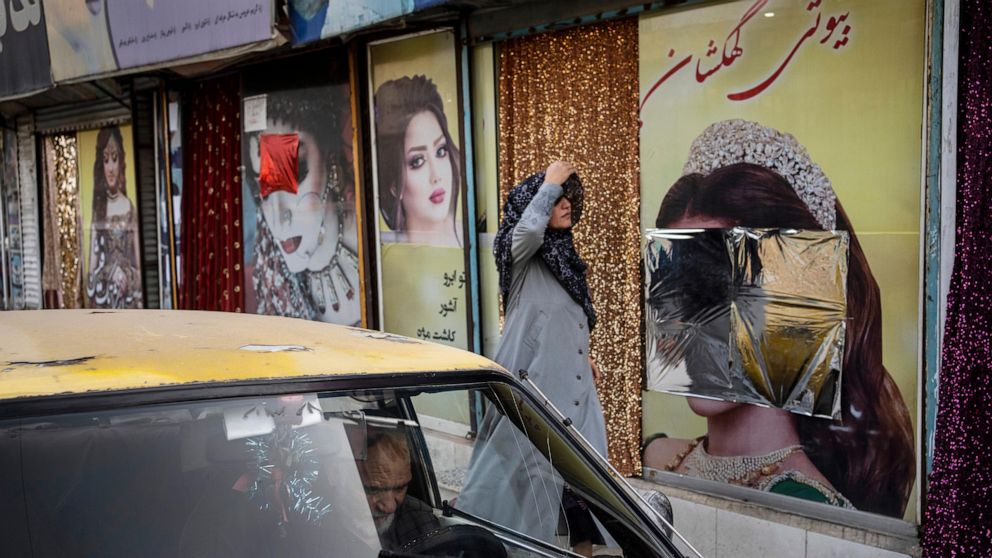Title: The Taliban’s Ban on Women’s Beauty Salons in Afghanistan: A Step Backwards for Women’s Rights
Introduction
Afghanistan has long been a country grappling with gender inequality and restrictions on women’s rights. The Taliban’s resurgence in recent years has further exacerbated the situation, with their imposition of strict rules and regulations. One such measure is the ban on women’s beauty salons, which not only deprives Afghan women of a means of livelihood but also symbolizes a significant setback for their empowerment and freedom.
Historical Context
Prior to the Taliban’s rule, Afghan women had made significant progress in various fields, including education, employment, and personal freedoms. Beauty salons played a crucial role in this progress by providing employment opportunities for women and fostering a sense of independence. These salons not only offered beauty services but also acted as safe spaces for women to gather, share experiences, and support one another.
The Taliban’s Ban
Under the Taliban’s rule, women’s beauty salons have been banned, citing religious and cultural reasons. The Taliban’s interpretation of Sharia law considers the display of women’s beauty as immoral and incompatible with their vision of an Islamic society. Consequently, women are now prohibited from working in or visiting beauty salons, leaving many unemployed and devoid of financial independence.
Impact on Women
The ban on beauty salons has had severe consequences for Afghan women. Firstly, it has resulted in the loss of employment opportunities for thousands of women who were previously working in the industry. This has not only affected their financial stability but has also diminished their sense of self-worth and agency.
Moreover, the closure of beauty salons has limited women’s access to essential grooming services. This restriction further reinforces the patriarchal norms that dictate how women should look and behave, denying them the freedom to express themselves and make choices about their appearance.
The Psychological Toll
Beyond the economic implications, the ban on beauty salons has taken a toll on the mental well-being of Afghan women. These salons were not merely places for beautification but also served as spaces for socializing, sharing stories, and finding solace. The loss of these safe spaces has left many women feeling isolated and disconnected from their communities.
The Way Forward
It is crucial to recognize the significance of beauty salons as more than just places for superficial grooming. They play a vital role in empowering women, fostering a sense of community, and promoting self-confidence. Therefore, efforts must be made to challenge the Taliban’s oppressive policies and support Afghan women in reclaiming their rights.
International organizations, governments, and civil society must continue to advocate for gender equality and women’s rights in Afghanistan. This includes pressuring the Taliban to reverse their ban on beauty salons and encouraging the establishment of safe spaces for women to gather, share experiences, and rebuild their lives.
Conclusion
The Taliban’s ban on women’s beauty salons in Afghanistan represents a significant setback for women’s rights and empowerment. By depriving women of employment opportunities, access to grooming services, and safe spaces, the ban reinforces patriarchal norms and undermines the progress made towards gender equality. It is imperative that the international community stands in solidarity with Afghan women, supporting their fight for freedom, independence, and the right to express themselves.



